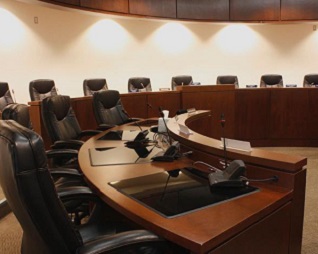Amherst opposes province’s new non-resident provincial property tax
Adjustments to the province’s new non-resident provincial property tax announced earlier this week by Premier Tim Houston haven’t convinced the Town of Amherst to support the new tax.
Instead, the town is joining other Nova Scotia municipalities in their opposition to the new tax, which was introduced by the province when it released the provincial budget earlier this spring.
The town is voicing its disapproval in a letter to the premier that is signed by Mayor David Kogon and was approved by the Amherst town council during a special session on Tuesday, May 3, 2022.
Initially, the new tax would have seen an additional $2 per $100 of assessment added onto the property taxes of non-residents who own property in the province. However, the province announced adjustments to the new tax that would see properties assessed at less than $150,000 exempt from the tax, properties assessed between $150,000 and $250,000 pay 0.5 per cent on assessed values and properties assessed at more than $250,000 would still pay $2 per $100 of assessment.
The provincial government has said they implemented the new property tax, and a five per cent deed transfer tax, in order to make housing more attainable and available, but the town says in the letter it opposes even the new adjusted non-resident property tax because no information or data has been made public that clearly defines the housing problem or “demonstrates how the initiative will solve it.”
The town considered the original rate of $2 per $100 of assessment to be excessive and that view didn’t change even after the province made the adjustments, the letter states.
While there are not many non-resident property owners in the town itself, the letter states there is a large number in the neighbouring Municipality of Cumberland who would be affected.
“These residents shop, purchase services within our town during the months of May-October,” the letter states. “The impact on our local businesses will be huge, and they have struggled the past two years due to COVID restrictions.”
The town also believes this new direct provincial property taxation is encroaching into the municipal tax base, which will result in property tax room being lost to municipalities that rely heavily on property taxation and do not have the authority to levy income or other more progressive taxes.
If the new tax is to meet its intended goal of addressing the housing supply, the town says in the letter that it believes any funds raised by it should remain in the municipality where it was collected and be invested in local projects that will result in an increase in attainable and affordable housing.
It’s also the opinion of the town that the properties impacted by the new tax are not compatible with the stated attainable housing goal.
“In other words, most properties sold as a result of the new tax rate … are not like to be properties related to the stated goal,” the letter says.
In addition, the town is concerned that any new construction proposed by non-residents will be cancelled because of the new taxes.
The letter states the town supports the province’s goal of increasing the amount of attainable housing in Nova Scotia and welcomes the provincial government’s increased focus on the issue, but feels the government’s new, adjusted, taxation plan will not solve the issue, but will “create further problems.”
As a result, the town believes the proposed tax should be abandoned so that other, more refined measures to solve the housing issue can be developed with input from municipalities, relevant business sectors, associated business associations, such as Realtors and tourist organizations, and the community.








